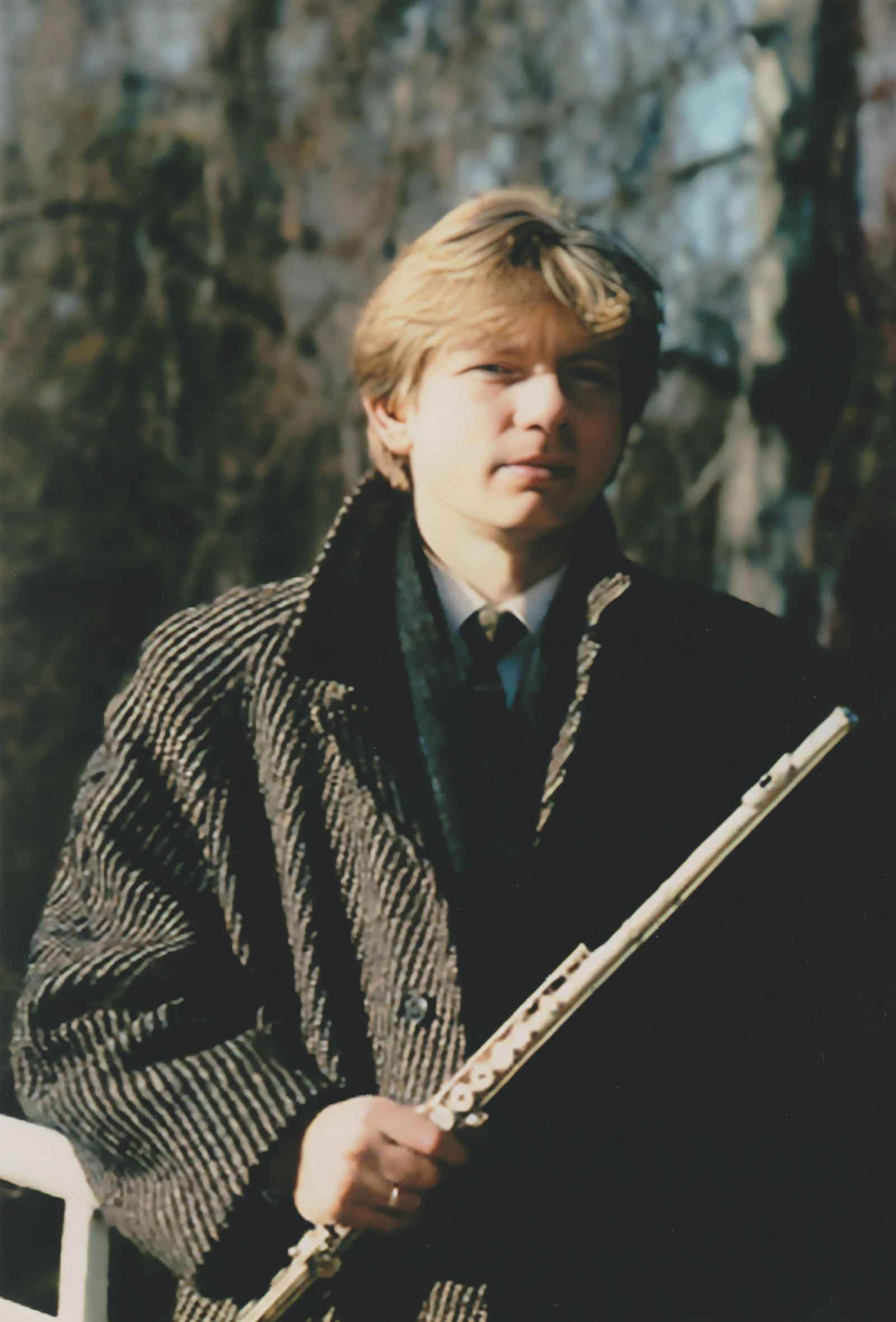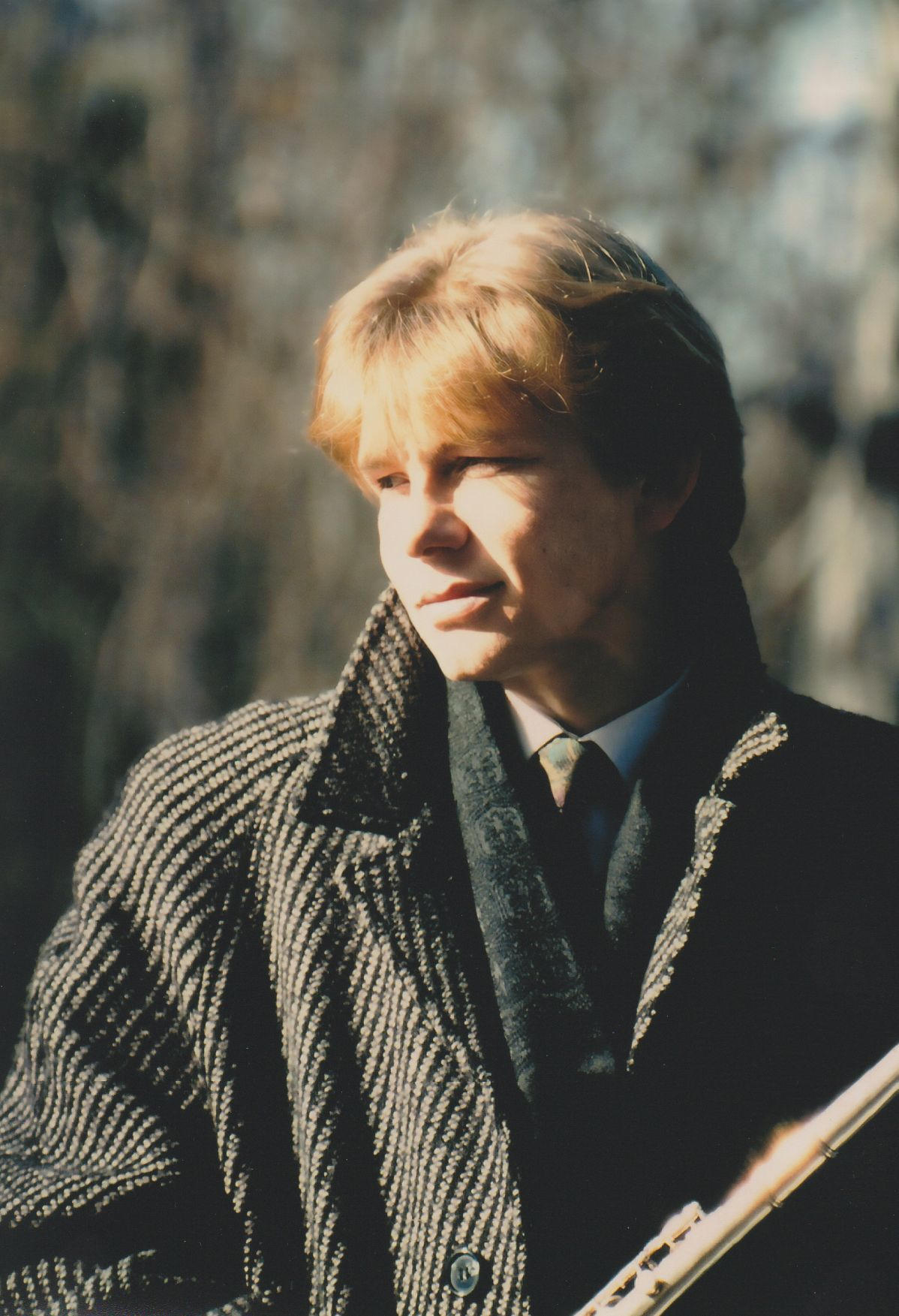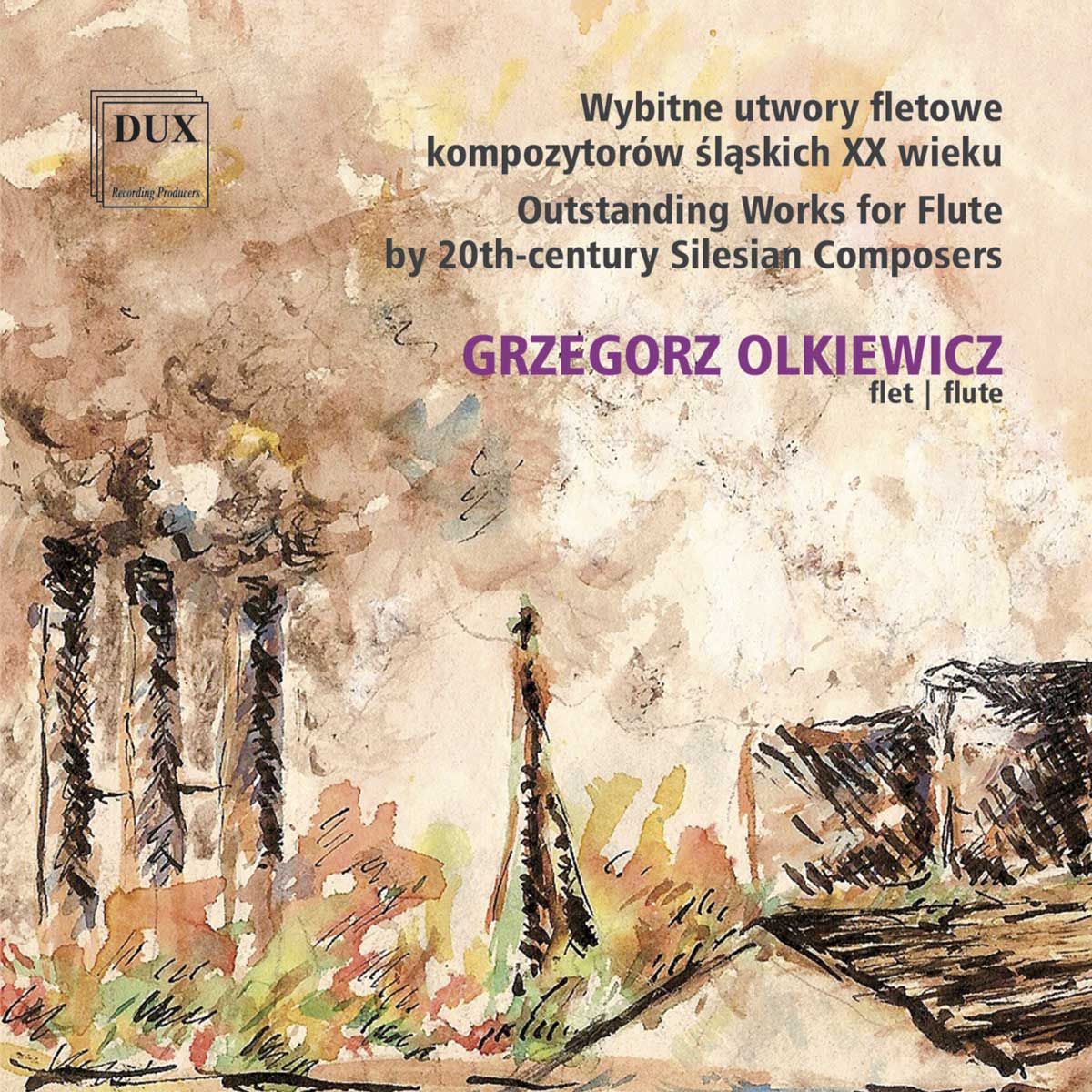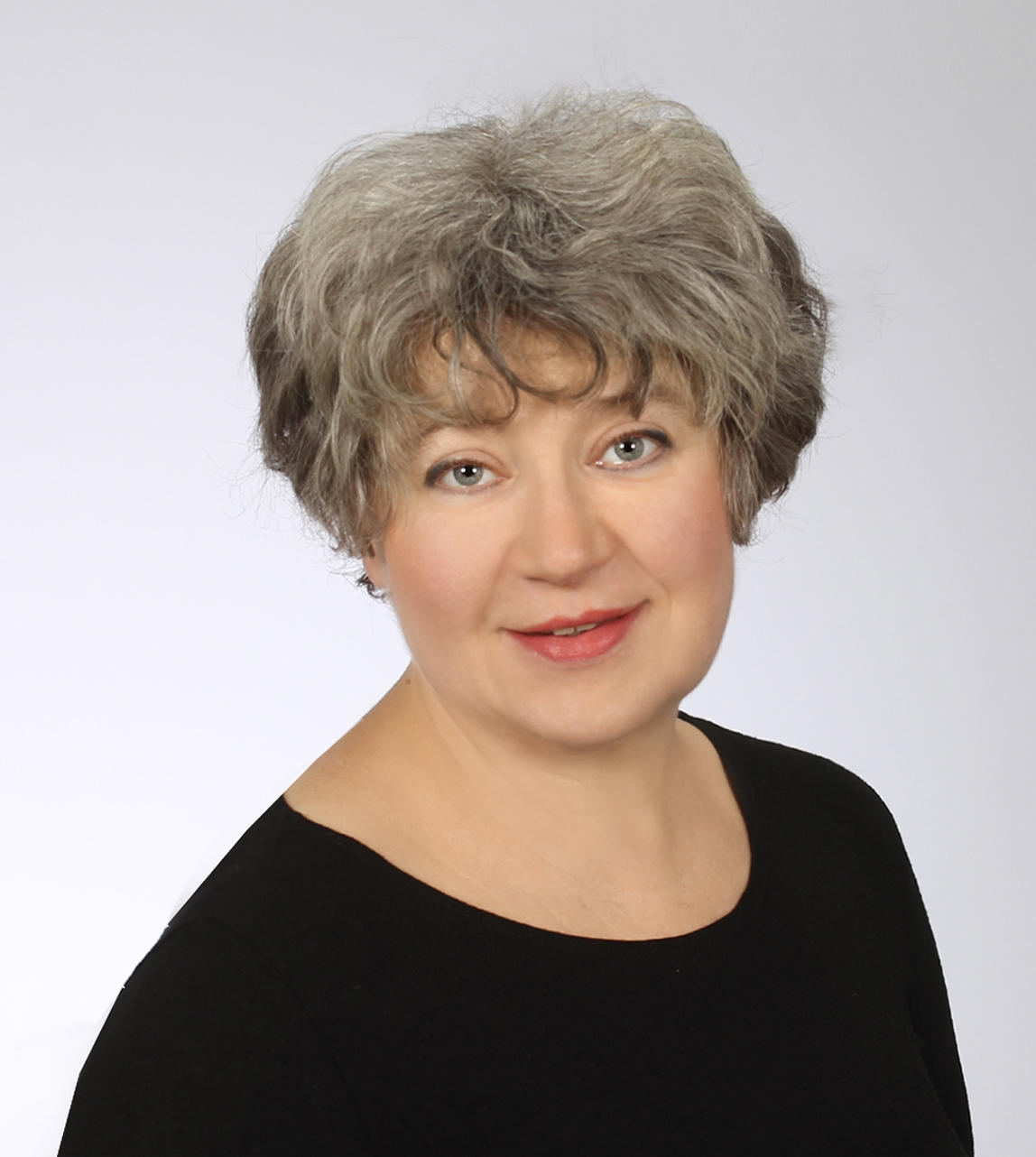
Polish
Society
of Double Bassists
Do you want to be happy? Play Double Bass!
Uncategorised
Piotr Rojek
 Ukończył studia w Akademii Muzycznej im. Karola Lipińskiego we Wrocławiu na Wydziale Instrumentalnym w klasie organów prof. Andrzeja Chorosińskiego oraz na Wydziale Kompozycji, Dyrygentury, Teorii Muzyki i Muzykoterapii w klasie kompozycji prof. Zygmunta Herembeszty i prof. dr. hab. Krystiana Kiełba.
Ukończył studia w Akademii Muzycznej im. Karola Lipińskiego we Wrocławiu na Wydziale Instrumentalnym w klasie organów prof. Andrzeja Chorosińskiego oraz na Wydziale Kompozycji, Dyrygentury, Teorii Muzyki i Muzykoterapii w klasie kompozycji prof. Zygmunta Herembeszty i prof. dr. hab. Krystiana Kiełba.
Odbył szereg kursów mistrzowskich interpretacyjnych oraz improwizatorskich, prowadzonych przez tak wybitne osobistości świata muzyki organowej, jak: Julian Gembalski, Bernhard Haas, Hans Haselböck, Ferdinand Klinda, Ton Koopman, Jon Laukvik, Armin Schoof, Wolfgang Seifen, Józef Serafin czy Harald Vogel.
Dr hab. Piotr Rojek pracuje na stanowisku profesora w macierzystej uczelni. Jest Dziekanem Wydziału Instrumentalnego oraz Kierownikiem Katedry Organów, Klawesynu i Muzyki Dawnej. Prowadzi również klasę organów w Państwowej Szkole Muzycznej II stopnia im. Ryszarda Bukowskiego we Wrocławiu oraz Ogólnokształcącej Szkole Muzycznej I i II stopnia im. Karola Szymanowskiego we Wrocławiu.
Artysta regularnie koncertuje zarówno w kraju, jak i za granicą: /m.in./ w Czechach, Finlandii, Hiszpanii, na Litwie, Łotwie, w Niemczech, Norwegii, Słowacji, Szwecji, Ukrainie, USA, Wielkiej Brytanii we Włoszech oraz na Wyspach Ålandzkich. Prowadzi także kursy mistrzowskie w kraju i za granicą. Ma w dorobku kilkanaście płyt. Powstała w 2005 roku płyta, na której zarejestrowano dziewięć toccat wybitnych kompozytorów od baroku do XX wieku, wykonanych na zabytkowych organach Adama Horacego Caspariniego w Wołowie, otrzymała nominację do prestiżowej nagrody Polskiej Akademii Fonograficznej FRYDERYK.
Piotr Rojek był stypendystą Ministra Kultury i Sztuki, Internationale Altenberger Orgelakademie w Niemczech oraz laureatem konkursów organowych i kompozytorskich.
Artysta otrzymał także szereg nagród i wyróżnień, m.in.: Nagrody Rektora Akademii Muzycznej im. Karola Lipińskiego we Wrocławiu, Nagrodę Dyrektora Centrum Edukacji Artystycznej w Warszawie, Brązowy Krzyż Zasługi, Odznakę Zasłużony dla Kultury Polskiej, Medal Komisji Edukacji Narodowej, Nagrodę Ministra Kultury Ukrainy oraz Gwiazdę Orderu Kapituły Kanoników w uznaniu zasług położonych w odbudowie barokowych organów Michaela Englera w Bazylice św. Elżbiety we Wrocławiu.
Andrzej Jungiewicz
 Absolwent klasy fortepianu prof. Józefa Stompla oraz klas kameralnych prof. Marii Szwajger-Kułakowskiej i prof. Urszuli Stańczyk w Akademii Muzycznej w Katowicach. Doktor habilitowany, profesor w macierzystej Uczelni oraz nauczyciel dyplomowany w Zespole Państwowych Szkół Muzycznych w Katowicach.
Absolwent klasy fortepianu prof. Józefa Stompla oraz klas kameralnych prof. Marii Szwajger-Kułakowskiej i prof. Urszuli Stańczyk w Akademii Muzycznej w Katowicach. Doktor habilitowany, profesor w macierzystej Uczelni oraz nauczyciel dyplomowany w Zespole Państwowych Szkół Muzycznych w Katowicach.
Brał udział w mistrzowskich kursach pianistycznych i muzyki kameralnej pracując pod kierunkiem m. in. Ryszarda Baksta, Rudolfa Buchbindera, Konrada Richtera.
Jest laureatem konkursów pianistycznych i muzyki kameralnej.
Jako solista i kameralista koncertował w prestiżowych salach koncertowych w Polsce i za granicą w Brazylii, Chinach, Czechach, Francji, Hong Kongu, Kolumbii, Malezji, Niemczech, Pakistanie, Słowacji, Szwajcarii, Szwecji, Ukrainie. Występował m. in. z wieloma wybitnymi flecistami: Grzegorzem Olkiewiczem, Jadwigą Kotnowską, Agatą Kielar-Długosz, Łukaszem Długoszem, Peterem-Lukasem Grafem, Andrasem Adorianem, Patrickiem Gallois, Philippe Bernoldem, Denisem Bouriakovem, Dejanem Gavrić; kontrabasistami: Ireną Olkiewicz, Sonią Ray, Francois Rabbathem, Thomasem Martinem, Catalinem Rotaru, Miloslavem Gajdosem, Miloslavem Jelinkiem, Barry Greenem; saksofonistami: Bartłomiejem Dusiem, Dariuszem Samólem, Laran Jerome, Noah Getzem.
Brał udział w wielu festiwalach m. in. Międzynarodowe Festiwale Muzyki Organowej i Kameralnej Radom - Orońsko, Światowe Festiwale Kontrabasowe we Wrocławiu, Festiwale Saksofonowe w Szczecinie, Warszawska Jesień, Prawykonań w Katowicach, Musica Polonica Nova we Wrocławiu, Poznańska Wiosna Muzyczna, Muzyki Współczesnej Nowe Fale w Gdańsku, Lubelskie Forum Sztuki Współczesnej, Śląskie Dni Muzyki Współczesnej, Kompozytorów Krakowskich, Emanacje w Lusławicach, Chantarelle Festival w Gołuchowie, Sacrum Non Profanum w Trzęsaczu i w Szczecinie, Mikołowskie Dni Muzyki,
Dokonał prawykonań muzyki najnowszej kompozytorów polskich m. in. Grażyny Pstrokońskiej-Nawratil, Justyny Kowalskiej-Lasoń, Ewy Fabiańskiej-Jelińskiej, Jerzego Kornowicza, Jarosława Siwińskiego, Wojciecha Widłaka, Rafała Augustyna, Marcina Błażewicza, Aleksandra Nowaka, Artura Kroschela, Grzegorz Wierzby, Andrzeja Dziadka, Piotra Wróbla.
Nagrywał dla radia i telewizji. Zrealizował nagrania płytowe m. in. z kontrabasistką Ireną Olkiewicz: Medytacja Thais, z pianistką Gabrielą Szendzielorz: Muzyka współczesnych kompozytorów śląskich dla 2 pianistów a także z flecistką Agatą Kielar-Dlugosz: Vive la Paris! oraz For You, Anne-Lill.
Zapraszany jako akompaniator na liczne mistrzowskie kursy i warsztaty współpracował z wieloma wybitnymi muzykami.
Grzegorz Olkiewicz - Patron Profile
„ ... the flute and the double bass are two distant instruments, but only in terms scale.
Meanwhile, the performance of music cannot be distant from the music itself.
In fully mature artistic creations, the very manner of initiating the sound, its quality, the way it vibrates and fits into its timbre, is unfathomable and, practically speaking, unpredictable.
For an excellent instrumentalist, there is no limit to finding ever new means of expression, new timbres, ways of beginning the sound or releasing it.
And this is fascinating, this is beautiful!”

23 August 1992, Grzegorz Olkiewicz interviewed by Zofia Owińska in the Wrocław Polish Radio programme - „My music”
 Born on 6 April 1959 in Katowice. Died on 29 November 2021 in Wrocław.
Born on 6 April 1959 in Katowice. Died on 29 November 2021 in Wrocław.
He is laid to rest in the Cemetery at the Catherine's Parish Church in Pielgrzymowice, Silesia.
Grzegorz Olkiewicz graduated from the Secondary Music School in Katowice in the flute class of Antoni Rog. He then studied flute under Prof. Marian Katarzyński and Prof. Stanisław Michalik at the Karol Szymanowski Academy of Music in Katowice. He developed his skills under Severino Gazzelloni at the Accademia Musicale Chigiana in Siena, Italy (1984), and under Arnoust Bourk at the Leos Janaček Academy in Brno, Czechoslovakia (1985).
He received the scholarship of the Minister of Culture and Art three times.
Grzegorz Olkiewicz worked as a soloist with the Silesian Philharmonic Orchestra in Katowice (1978– 1982) and with the Cairo Symphony Orchestra in Egypt (1988). He also collaborated with the Sinfonia Helvetica orchestra (Switzerland) conducted by Grzegorz Nowak (1993–1994).
Having resigned from his job at the Silesian Philharmonic Orchestra, in 1982, Grzegorz Olkiewicz began his solo career. He gave concerts with most symphony and chamber orchestras in Poland as well as in England, Austria, Belgium, Denmark, France, Spain, the Netherlands, Luxembourg, Germany, Switzerland, Sweden, Italy, Lithuania, Ukraine, Egypt, and the USA. His repertoire ranged from the Renaissance to the 20th-century music, comprising around 40 concertos (among them Krzysztof Penderecki's Flute Concerto) and around 100 sonatas (including Wojciech Kilar's Sonatina for flute and piano). Composers such as Grażyna Pstrokońska-Nawratil, Richard Brooks (USA), Ryszard Gabryś, Aleksander Glinkowski, Volodymyr Runchak (Ukraine), and Krzysztof Zgraja dedicated him their compositions.
In the years1982–1988, Grzegorz Olkiewicz, together with the cellist Andrzej Bauer and the pianist Waldemar Malicki, co-founded the Polish Trio, with which he gave concerts and recorded music for the Polish Radio. The Flute Sonatas by Johann Sebastian Bach and Georg Friedrich Haendel recorded with this ensemble were named the best radio recording of 1983.
 Grzegorz Olkiewicz also gave concerts in unusual instrumental configurations, e.g. with
Grzegorz Olkiewicz also gave concerts in unusual instrumental configurations, e.g. with
the guitarist Krzysztof Pełech, the percussionist Stanisław Skoczyński, and others. He premiered many flute works composed in the 20th century. He also took part in original television and radio programmes popularising wind instruments. In the years 1984–1985, together with Jan Weber, he hosted a programme on the Polish Radio entitled ‘James Galway's Anthology’, and from 1992 to 1993, the Polish Radio in Wrocław broadcast his original programme entitled ‘Tales of the Enchanted Flute’. He also made programmes for the Polish Television in Katowice and Warsaw.
In 1997, Grzegorz Olkiewicz became the artistic director of the ‘Sotto Voce’ Polish Chamber Orchestra, with which he recorded a CD with works by the Strauss family for the DUX record company and conducted over 300 concerts in Poland, Egypt, Germany, and France. As a conductor and soloist, he also worked with the Cairo Symphony Orchestra.
As a soloist, Grzegorz Olkiewicz made archival recordings of more than 50 flute works for radio stations in Poland and the USA. His recordings were released by such record labels as Polskie Nagrania, Polskie Nagrania Edition, DUX, Tonpress (Poland), Koch International, Karussel (Germany), Pauline Edition (Vatican), Pony Canyon (Japan), and Sonoris Records, Capstone Records and Owl Recordings Inc. (USA).
Grzegorz Olkiewicz was also active as a teacher. In 1988, he was an Expert at the Conservatoire de Musique in Cairo, Egypt, and from 1989 to 2013, he taught flute at the Karol Lipiński Academy of Music in Wrocław. In addition, he gave master classes in New York, Frankfurt am Main, Kiev, Orońsko, Duszniki-Zdrój, and Wojnowice, among others. He was a juror of national and international music competitions.
Grzegorz Olkiewicz arranged many compositions, including works by Fryderyk Chopin, for the Polish Music Publishing House and the Brasinmusicanta Publishing House in New York (USA).
Between 2012 and 2015, DUX released three new albums by Grzegorz Olkiewicz: ‘Works for Flute by 20th-Century Wrocław Composers’ (2012), ‘Famous Flute Miniatures’ with the accompaniment of the pianist Waldemar Malicki (2013), and a double album entitled ‘Outstanding Flute Works by 20th-Century Silesian Composers’ (2015), which was nominated for the Fryderyk Award in 2016. Currently, another album is being prepared for release, that is ‘Grzegorz Olkiewicz Plays Polish Flute Concertos’, with the accompaniment of, among others, the Amadeus Orchestra of the Polish Radio and Television conducted by Agnieszka Duczmal.
The pieces on the CDs come from archival recordings of the Polish Radio in Warsaw, Gdańsk, Katowice, and Wrocław.
In addition to his intensive activity as a performer, music promoter, teacher, and publisher, in 1994, Grzegorz Olkiewicz originated and co-founded the Polish Flutist Association, where he held the position of the president, and from 1997 – the vice-president. From 1994, he was an Honorary Member of the Polish Association of Double Bass Players, and from 1997, an Honorary Member of the Nicholas of Radom Foundation.
In 2010, Grzegorz Olkiewicz was awarded the Honorary Badge of Merit for Polish Culture.
An entry on Grzegorz Olkiewicz can be found in the latest edition of the Polish Encyclopaedia of Music published by the Polish Music Publishing House and on the www.polmic.pl website.

Selected reviews from Polish and international press
Olkiewicz is, undoubtedly, an extraordinary artist by all standards, if only because he plays probably everything that has been composed in Polish music not only for solo flute, but also with the flute as a concert instrument or as part of various chamber ensembles. Olkiewicz constantly expands his repertoire, sometimes for immediate purposes, with works written specially for him, often engaging personally with the composers and taking a peek into their artistic processes. He is known to the most important European concert halls and prestigious orchestras both in Poland and Europe, or... in Cairo, where he spent a long time as a soloist of the symphony orchestra. Recently, he has been co-publishing a new music magazine, Flecista, and has taken on teaching duties at the Academy of Music in Wrocław, being involved at the same time with the activities of the Polish Flutist Association, which he co-founded. Above all, having earned the status of a free artist, he records music and gives concerts – regrettably, too rarely in his home town of Katowice.
Lately, shortly before his concert tour in New York, at the beginning of summer, invited by the Katowice Branch of the Polish Composers' Union, he gave a truly extraordinary, masterly and, in the best sense of the word, virtuosic recital at the Archdiocesan Museum, demonstrating his outstanding stylistic sensitivity on the one hand, and, on the other, his creative competence in the tentative area of contemporary music with its most varied technical and aesthetic forms – something rare among Polish wind players, regardless of many excellent talents in the field.
(...) we also became acquainted with Edward Bogusławski's mobile form (before the performance, Olkiewicz went through the ritual of shuffling the scoreboards), the Five Pictures, and then we listened to the pieces of which not even a note has become outdated despite several decades having passed since their composition – the Three Diagrams by Henryk Mikołaj Górecki, well-known from other flute performances, but this time presented truly masterfully and, as I believe, in remarkable consistency with the composer's intention. We can only hope fervently that the Diagram no. 4, created 35 years ago, will be performed at one of the forthcoming Tribunes, and that this initiatory performance, most expectedly an exemplary one, will come from under the fingers and through the flute breaths of Grzegorz Olkiewicz!
(...) a great Polish artist, probably the first among our today’s flute masters. Grzegorz Olkiewicz also presented my composition entitled Syrinx of the Starowiejski Park (it was premiered at the Contemporary Chamber Music Festival in Stara Wieś – hence the composition's name – organised by the Fryderyk Chopin Academy of Music), preceded, probably for the first time at Olkiewicz's recitals and very successfully, by Claude Dubussy’s brilliant miniature Syrinx, to which I have deliberately and with all meta-musical awareness alluded in my work: it was thus a perfect and exemplary situation in terms of performance and context. Listening to Olkiewicz's co-creative interpretation, accurate to the smallest detail, I recall the circumstances of the festival premiere: as usually, I had the music ready at the last minute, and as usually, it was technically and – a sure thing - interpretatively very demanding, partly due to the unconventional flute timbres. Olkiewicz, though, needed barely a quarter of an hour to decipher this code, while the atmosphere of the overcrowded hall and the close contact with the audience released in him a creative flow of imagination, as had also been the case at the 73rd Silesian Tribune. These are the characteristics of a true master virtuoso: the immediate, unerring penetration of creative intentions, the ability to charge with and ‘feed’ on the emotions of the concert hall, the transformation of stage fright into spontaneous expression that captures the audience, including the most demanding one – since it consisted mostly of professionals – that gathered at the Katowice Museum.
Author: Ryszard Gabryś "OPCJE" Katowice 3/96
Grzegorz Olkiewicz's interpretation emphasises the aura of melancholy (in the slow movement), the lyricism and melodiousness of the piece (which also characterise the fast movements). Particularly wonderful is the final Allegro di molto, very fast and ethereal, yet full of dramatic contrasts.
In a similar way, Olkiewicz plays the virtuosic, brilliant-style outer movements of Saverio (not Saviero as stated on the CD cover) Mercadante's Concerto, written in 1819. The name of this now somewhat forgotten but formerly revered Neapolitan composer (an author of sixty operas) became famous a few years ago thanks to the third movement of the Concerto, the Rondo Russo, which was promoted as a music video. The truly ‘breathtaking’ piece, however, is Bach's Badinerie – played not only at a dizzyingly fast tempo, but also with ornaments added by the soloist to an already breakneck (or rather, finger-breaking) part.
The soloist plays with a beautiful, silvery tone, soft in the upper and deep in the lower register, and he knows how to vary the timbre, which is most evident in the play of tone colours in
Debussy's impressionistic solo Syrinx. At most, one could wish for a slightly ‘sparser’ vibration in the fast outer movements of Bach's Flute Concerto in D Minor.
Also from the technical point of view, Grzegorz Olkiewicz performs all the works perfectly - particularly admirable is the wonderful staccato: precise, resonant, and soft. No wonder this recording was awarded a prize at the Frankfurt International Flute Festival in 1993.
The whole piece exudes the joy that excellent performers can feel when playing excellent music. It is worth sharing this joy.
Author: Joanna Czerwińska STUDIO 95/1/19
Historie du Tango
Grzegorz Olkiewicz (flute). Krzysztof Pelech (guitar), Stanislaw Skoczynski (percussion).
In the Piazzolla Tango suite the performers install some new ideas (inluding percussion) on this fabulous piece wchich must now be up there in the most recorded flute and guitar piece alongside Giuliani's op. 85 and Ibert's En'tract (also on this CD).
On this highly entertaining and interesting programme it is very difficult to itemise any one or two pieces as standing out from the rest. Both Olkiewicz and Pelech perform at top level both technically and musically throughout. However, if pushed, I would have to go for the Arabesque by Piazzolla, the gorgeous Falla composition, the three Machado pieces and one of the best tunes to come from South America. Bonfa's Black Orpheus, if only for their relative rarity value on guitar and flute recordings.
The percussion plays comparative little part in this programme, just appearing in several of the South American pieces, and then is not too intrusive.
This is a most appealing recording with many contrasts in mood., the music being given sympathetic and thoughtful interpretations.
Steve Marsh Classical 1998
(...) for the first time, a true ‘lion’ among Polish conductors - Robert Satanowski – will appear at the conductor's stand, (...) he will come accompanied by the best Polish flutist, GRZEGORZ OLKIEWICZ.
Nowiny Jeleniogórskie - 8.10.93
The solo part in Krzysztof Penderecki’s Flute Concerto was performed by Grzegorz Olkiewicz. His performance became a major event in the musical life of Poznań.
Gazeta Poznańska '95
El Concierto para flauta y orquesta, en re menor, que Grzegorz Olkiewicz interpreto como solista, es una obra intermedia entre el barocco y el classicismo. (...) Solista u orquesta se intergraron en un conjunto equlibrado que permitio flexiblemente destacar las intervenciones de cada cual.
Marisa manzano
EL NORTE CASTILLA - 17.10.90
En su tercera gira por espana, la Orquesta "Amadeus" dirigida por Agnieszka Duczmal conto con la colaboracion de uno de los mejores flautistas polacos: Olkiewicz, quienes han ofrecido el bellisimo "Concierto para flauta y orquesta en Mi menor" de Saverio Mercandante, uno de los seis que compuso para esta formacion. (...) Pues bien, la version ofrecida a los filarmonicos pontevedreses rayo a gran altura, en la que el flautista Grzegorz Olkiewicz derrocho generosidad interpretativa, luciendo en todo momento un bello fraseo y un dulce sonido. (...) El numeroso publico, compilado aplaudio con calor fodas las obras interpreadas redoblando muestras a la conclusion de ambas partes, por lo que el solista de flauta hubo de ofrencer al finalizar la primera parte "Syrinx" para flauta solo de Claude Debussy y a la conclusion del programa la Orquesta "Amadeus", siempre bajo la experta direccion de Agnieszka Duczmal.
Diario de Pontevedra - 23.10.90
Ein interessantes Werk, das einmal einen vergessenen Meister und durch die Interpretation ein erstklassiges Kammerorchester nahebrachte. Der Solist des Abends war der Pole Grzegorz Olkiewicz, der auf seiner Querflöte Emanuel Bachs berühmtes Flötenkonzert in d- Moll mit Verve, schönem kantablem Ton und viel musikalischer Phrasierungkunst zum Leuchten brachte. Wohl wäre dieses Paradestück von Bachs zweitältestern Sohn in einem akustisch glanzvollerem Raum brillanter ausgefallen, doch des Solisten Können war erkennbar.
Schopheim
Grzegorz Olkiewicz war in technischer und musikalischer Hinsicht ein hervorragender Solist in dem Konzert für Flöte und Streicher d-Moll von C. Ph. E. Bach. Sein Spiel war angenehm weich, silbern klar in der Höhe, aber auch klangvoll in der problematischen Mittelage, die auch in der kurzen Kadenz zum 2. Satz bevorzugt wird.
Das weite Ausschwingen der Melodiebögen des Andante vermittelte innere Ruhe, unterstützt durch das aufmerksame Orchester, das sich hier wesentlich als Folie für dem Solisten verstand. Spritzig, schnell, mit glitzerndem Laufwerk präsientiere sich der letzte Satz.
Claude Debussys "Syrinx" für Flöte allein aus dem Jahre 1912 gab als Zugabe Grzegorz Olkiewicz die Möglichkeit seine hohen klanggestalterischen Fähigkeiten zu zeigen.
Bensheimer Azeiger - 25.09.85
Lichtblick und Mittlepunkt des Konzertes war zweifellos Grzegorz Olkiewicz, der junge Solist in Karl Philipp Emanuel Bachs Flötenkonzert d-Moll; Von auffalender Spannkraft und
Schönheit die tiefe Lage seines Instruments, glänzend und gleichzeitig unafdringlich die Höhe. Die Phasierung und Verzierung der Beiden ersten Sätze deckte sich etwa mit den Ausführungen der von Kurt Redel herausgegebenen Partitur. Im Allegro molto verzichtete Olkiewicz weitgehend auf die gängigen Bindugen. Eine zungenbrecherische Eskapade, wenngleich auch musikalisch anfechtbar.
Darmstadter Echo - 23.09.85
Flötisten aus Ostblockstaaten werden hierzulande oftmal noch mit Ignoranz übersehen, meint man doch, das Klangkultur in unserem westlichen Sinne bei ihnem nicht zu finden sei. Welch eklatantes Fehlurteil dies ist, beweist u.a. die hier vorliegende Aufnahme mit dem hervorragenden 31-jähren Flötisten Grzegorz Olkiewicz. Stilsicher sowohl bei C.Ph.E.Bach als auch bei Mercandante, musiziert Olkiewicz mit schönem Ton und guter artikulation.
Dabei kommen die cantablen Gesangsphrasen im e-moll Konzert des italienischen
Operkomponisten Mercandante zu voller Blüte. Der Solist wird ebenso kompetent begleitet vom Kammerorchester des Polnische Rundfunks. Die LP ist technisch einwandfrei gefertigt.
Author: Rüdiger Jacobsen Flöte actuell 1991
"GRZEGORZ OLKIEWICZ is already a recognized instrumentalist. His performance of the flute concerto by Krzysztof Penderecki in Poznan has left a positive impression (better than J.P. Rampal 's in the recent premiere) ".
Glos Wielkopolski 1993.
"Grzegorz Olkiewicz et les "Quatre Saisons" a la flute"
Lors d'un recent concert de l'ensemble de chambre de l'orchestre symphonique du Caire, au petit theatre de l'Opera, nous eumes la joie d'applaudir un grand musicien de Pologne: Grzegorz Olkiewicz, flutiste et chef d'orchestre, qui dirigea l'ensemble symphonique avec un extraordinaire raffinement et interpreta les sequences "solo" a la flute, avec une brillance remarquable. (...)
La seconde partie du programme debutait avec la Suite de Colas Breugnon de Tadeusz Baird, compositeur polonais qui naissait en 1928 et decedait en 1981. Basee sur l'Opera de Kabalevski, ainsi que sur le roman de Romain Roland, cette oeuvre comprend six mouvements, passant de la joie la plus trepignante a la tristesse la plus tragique, avec autant de moments emouvantsa, que de momenta heroiques. Elle a ete superbement dirigee par le Maestro et merveilleusement iterpretee par l'orchestre. Le concert se termina par une autre oevre polonaise, prticulierement belle et fort interessante de Wojciech Kilar: "Orawa". (...)
Le Mo. Grzegorz Olkiewicz fit preuve d'une parfaite autorite et d'autant de sensibilite. Ne en 1959 a Katowice, il etait premier flutiste de l'orchestre symphonique de Silesie, ainsi que de l'orchestre du Caire. Il est, indiscutablement, un musicien genial et un grand virtuose de son instrument. Son concert, ce soir-la, etait franchement sublime.
"Le Progres Egyptien" - 21 Juin 1997
---------------------------------------------------------------------------------------------------------------------------
Translation:
During a recent concert of the chamber ensemble of the Cairo Symphony Orchestra, in a small opera theatre, we were delighted to applaud a great musician from Poland: Grzegorz Olkiewicz, a flutist and conductor, who led the symphonic ensemble with particular subtlety and interpreted the flute solo parts with exceptional brilliance. The first part of the programme consisted of Vivaldi's famous Four Seasons interpreted by the instrumentalists and the solo flute instead of the usual violin, which was already a highly original innovation. The first season, Spring, was particularly beautiful: in the first Allegro, full of vitality and happiness, the joyful flute tunefully imitated bird calls and the murmur of springs caressed by the wind. Then came the Largo, evoking a shepherd and his faithful dog, followed by a second Allegro, reminiscent of a country dance. And then the second season, Summer, evoking both the heat of the sun and the melancholy calls of the cuckoo and the turtledove before turning into an abruptly arriving storm and then into the sound of rain preceding Autumn with its joyful villagers celebrating rich harvest with song and dance. Finally, Winter, with snow and cold, and a violent finale – all wonderfully lyrical and full of life.
The second part of the programme began with the Colas Breugnon suite by Tadeusz Baird, a Polish composer who was born in 1928 and died in 1981. Based on Kabalevsky's opera and Romain Roland's novel, the work consists of six movements that go from great joy through very moving and heroic moments to the most tragic sorrow. It was magnificently conducted by the Maestro and wonderfully performed by the orchestra. The concert concluded with another very interesting Polish work of particular beauty - Orawa by Wojciech Kilar. He is a contemporary composer, born in 1932, who studied at the conservatory in Kraków and then in Paris, where he was awarded the Nadia Boulanger Prize in 1960. Recognised in his country primarily as an author of film music, he has also become known as a composer of orchestral works, including a concertante symphony, a concerto for two pianos, and symphonic poems. His Orawa, very rhythmic, melodic and colourful, is a truly impressive piece of music, which one would like to hear more often on the Cairo music stage. Maestro Grzegorz Olkiewicz demonstrated his superb professionalism and sensitivity.
Born in 1959 in Katowice, he was the first flutist of the Silesian Philharmonic Orchestra as well as of the Cairo Philharmonic Orchestra. He is unquestionably a brilliant musician and a
a great virtuoso of his instrument. His concert that evening was truly magnificent.
"Le Progres Egyptien" - 21 Juin 1997

Grzegorz Olkiewicz's splendid album of flute works
2016-02-07
There is no telling how many recorded pearls of musical literature lie in the archives awaiting a CD release. In the case of the double album by the Wrocław-based flutist Grzegorz Olkiewicz, it is the material recorded between 1984 and 1997 that has been published. We can listen to flute works by 20th-century Silesian composers and to a fantastic flutist who seems meant to play them. A perfect symbiosis.
Pearls from the archives
 A double-CD album entitled 'Outstanding Flute Works by 20th-Century Silesian Composers' has just been released by the DUX recording company, with support from the City of Wrocław. All works - both solo and accompanied by two different orchestras - are performed by Grzegorz Olkiewicz, a flutist born in Katowice, who has, however, spent most of his professional life in Wrocław, where he not only played, but also taught and conducted music. Due to illness, he had to limit his artistic activity, and now he does not record music, but it turns out that the archives (in this case of the Polish Radio) still hold many surprises signed with his name.
A double-CD album entitled 'Outstanding Flute Works by 20th-Century Silesian Composers' has just been released by the DUX recording company, with support from the City of Wrocław. All works - both solo and accompanied by two different orchestras - are performed by Grzegorz Olkiewicz, a flutist born in Katowice, who has, however, spent most of his professional life in Wrocław, where he not only played, but also taught and conducted music. Due to illness, he had to limit his artistic activity, and now he does not record music, but it turns out that the archives (in this case of the Polish Radio) still hold many surprises signed with his name.
This time, the CDs feature flute compositions – little known or completely unknown (except, perhaps, Witold Szalonek's Head of the Medusa) to the general public. But music lovers' knowledge of flute works is often limited to Mozart's Concerto for Flute and Harp or Debussy's solo Syrinx (alluded to, incidentally, in Ryszard Gabryś's miniature Syrinx of the Starowiejski Park recorded on the CD). It is time to change that, especially as contemporary flute music is exceptionally interesting, with composers exploring all the timbral qualities and technical possibilities of the woodwind instrument. Thanks to each of the compositions on the CD, we have the chance to get to know a completely different face of the flute.
What to enjoy on the CD
In the Sonata for flute and piano by Bolesław Woytowicz, we find a folk atmosphere, somewhat bawdy but also virtuosic. In the Sonatina for flute and piano by the then 19-year-old Wojciech Kilar, in addition to the beautifully outlined, clear form, there is no lack of humorous elements. Two works by the little-known composer Aleksander Glinkowski turn out to be exceptionally interesting – the Intermezzo for flute and chamber orchestra and the never-before-recorded Dialogos II for flute, cello and piano. There is no need to introduce the Head of the Medusa, which is very popular among flutists. Here, Witold Szalonek gave the artist a perfect chance to show off his skills, demanding, however, iron discipline in the execution of the subsequent passages. There are also Three Diagrams for solo flute by Henryk Mikołaj Górecki, and, finally, two works by Eugeniusz Knapik (the composer who also appears as an accompanying pianist in Woytowicz's Sonata), including the beautiful Corale, interludio e aria for flute, harpsichord and 11 string instruments performed with the Amadeus Orchestra conducted by Agnieszka Duczmal.
Masterly performance
Grzegorz Olkiewicz gives a masterful performance of all the compositions, and at the same time applies a completely different interpretative key to each of them, being faithful to the composer's instructions, not least because he himself prepared many of the works included here for publication (among them Wojciech Kilar's Sonatina), and has carefully studied every phrase. Careful execution is a great asset of these performances, but even more important seems to be the artist’s extraordinary sensitivity to sound and his perfect harmony with his musical partners, whether it is a small ensemble of instrumentalists or an orchestra.
Magdalena Talik 2016-02-07

GABRIELA SZENDZIELORZ-JUNGIEWICZ
 Ukończyła katowicką Akademię Muzyczną im. K. Szymanowskiego w dwóch specjalnościach: teorię na Wydziale Kompozycji, Dyrygentury i Teorii Muzyki oraz fortepian na Wydziale Instrumentalnym w klasie prof. Czesława Stańczyka.
Ukończyła katowicką Akademię Muzyczną im. K. Szymanowskiego w dwóch specjalnościach: teorię na Wydziale Kompozycji, Dyrygentury i Teorii Muzyki oraz fortepian na Wydziale Instrumentalnym w klasie prof. Czesława Stańczyka.
Obecnie jest profesorem doktorem habilitowanym w macierzystej uczelni.
Jest laureatką Konkursu Muzyki Kameralnej w Łodzi. Brała udział w konkursach Bachowskich w Lipsku i Saarbrücken, jak również w licznych kursach kompozytorskich i pianistycznych. Występowała w kraju i za granicą z recitalami solowymi, kameralnymi i jako solistka z orkiestrami.
Wielokrotnie uczestniczyła w międzynarodowych festiwalach muzyki współczesnej, jak m.in.: Warszawska Jesień, Musica Polonica Nova, Polska Muzyka Najnowsza – Festiwal Prawykonań w Katowicach, Śląskie Dni Muzyki Współczesnej w Katowicach, Dni Muzyki Kompozytorów Krakowskich. Poznańska Wiosna Muzyczna.
Dokonała prawykonań utworów polskich kompozytorów współczesnych: Z. Bargielskiego, E. Bogusławskiego, W. Cienciały, M. Cynk, M. Dubaja, A. Dziadka, R. Gabrysia, P. Grelli-Możejko, D. Jaskot, J. Kornowicza, J. Kowalskiej-Lasoń, P. Mossa, K. Moszumańskiej-Nazar, G. Pstrokońskiej-Nawratil, P. Radko, B. Schaeffera, M. Stachowskiego, A. Zawadzkiej-Gołosz, J. Zdechlikiewicz i innych.
Nagrywała: archiwalnie dla radia utwory Edwarda Bogusławskiego, Andrzeja Dziadka, Bolesława Szabelskiego, Juliusza Łuciuka; dla telewizji utwory Aleksandra Skriabina, walce XX wieku; na CD – Walce XX wieku, Dzwony, Muzyka współczesnych kompozytorów śląskich dla 2 pianistów nagrana wspólnie z Andrzejem Jungiewiczem, a także kompozycje Edwarda Bogusławskiego, Andrzeja Dziadka, Jacka Glenca, Aleksandry Garbal, Małgorzaty Kaniowskiej, Przemysława Szczotki.
Zajmuje się popularyzowaniem muzyki współczesnej, prowadząc warsztaty i kursy dla uczniów, nauczycieli i studentów.
Jako juror bierze udział w konkursach pianistycznych dla dzieci.
Jest autorką publikacji oraz artykułów dotyczących muzyki współczesnej i improwizacji.




